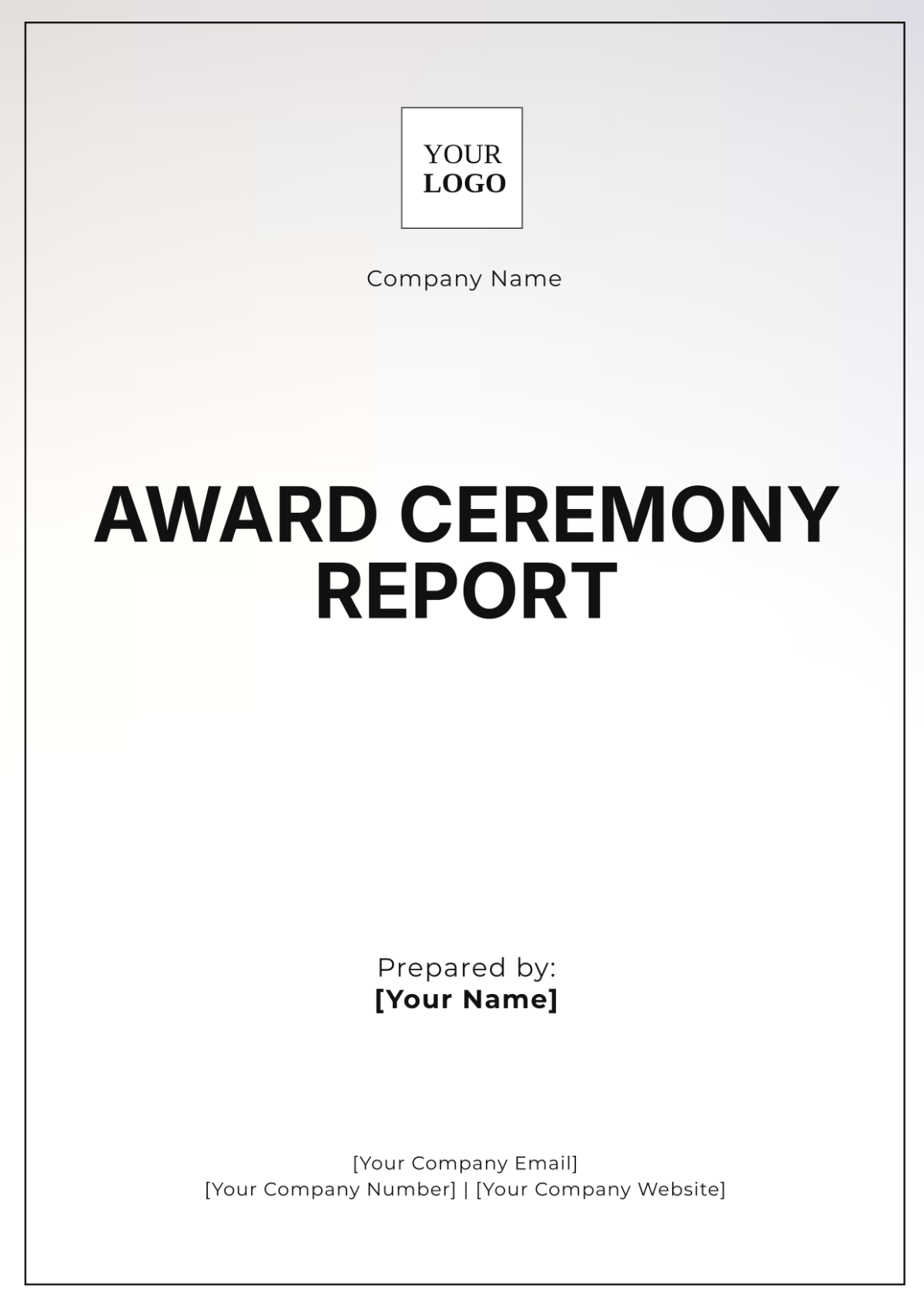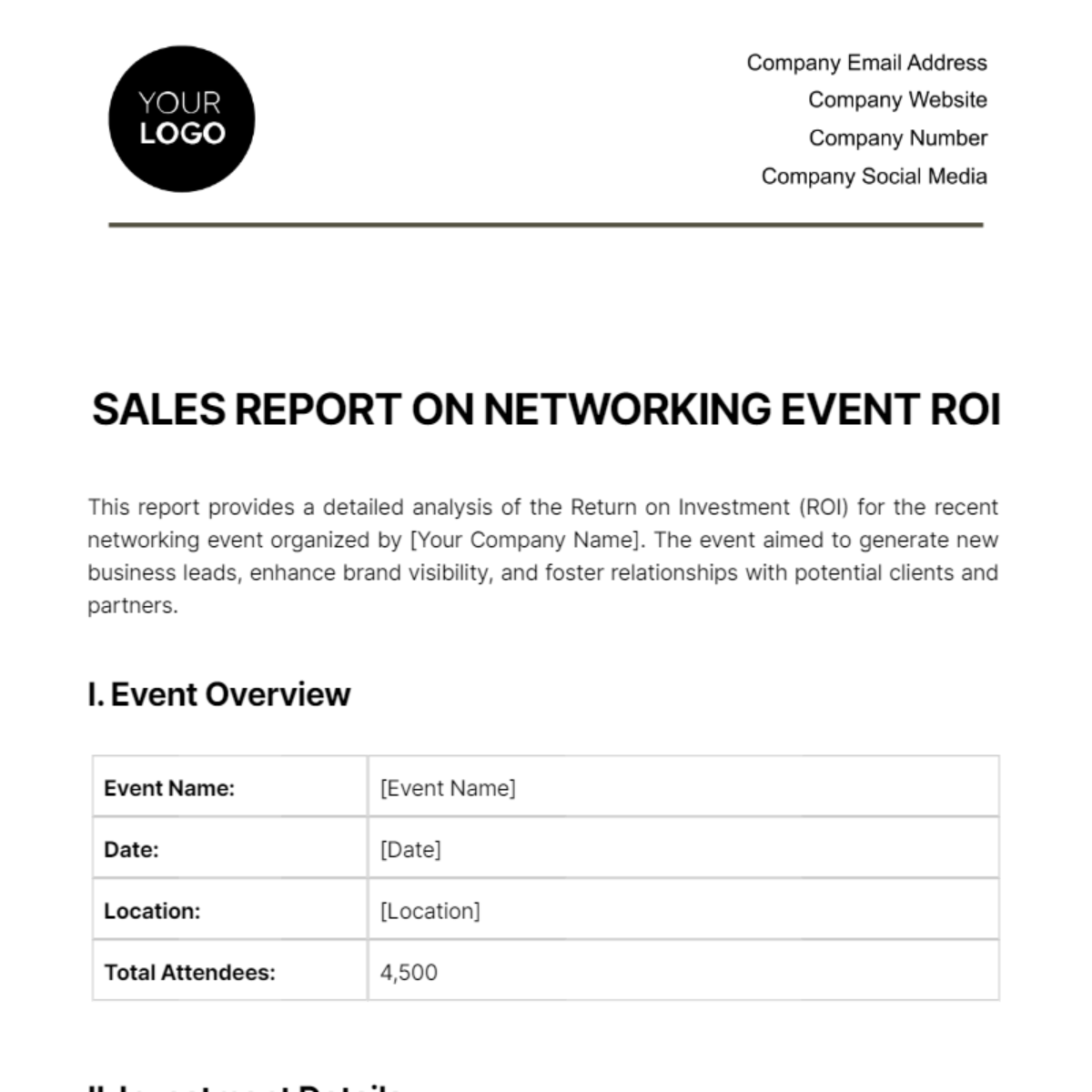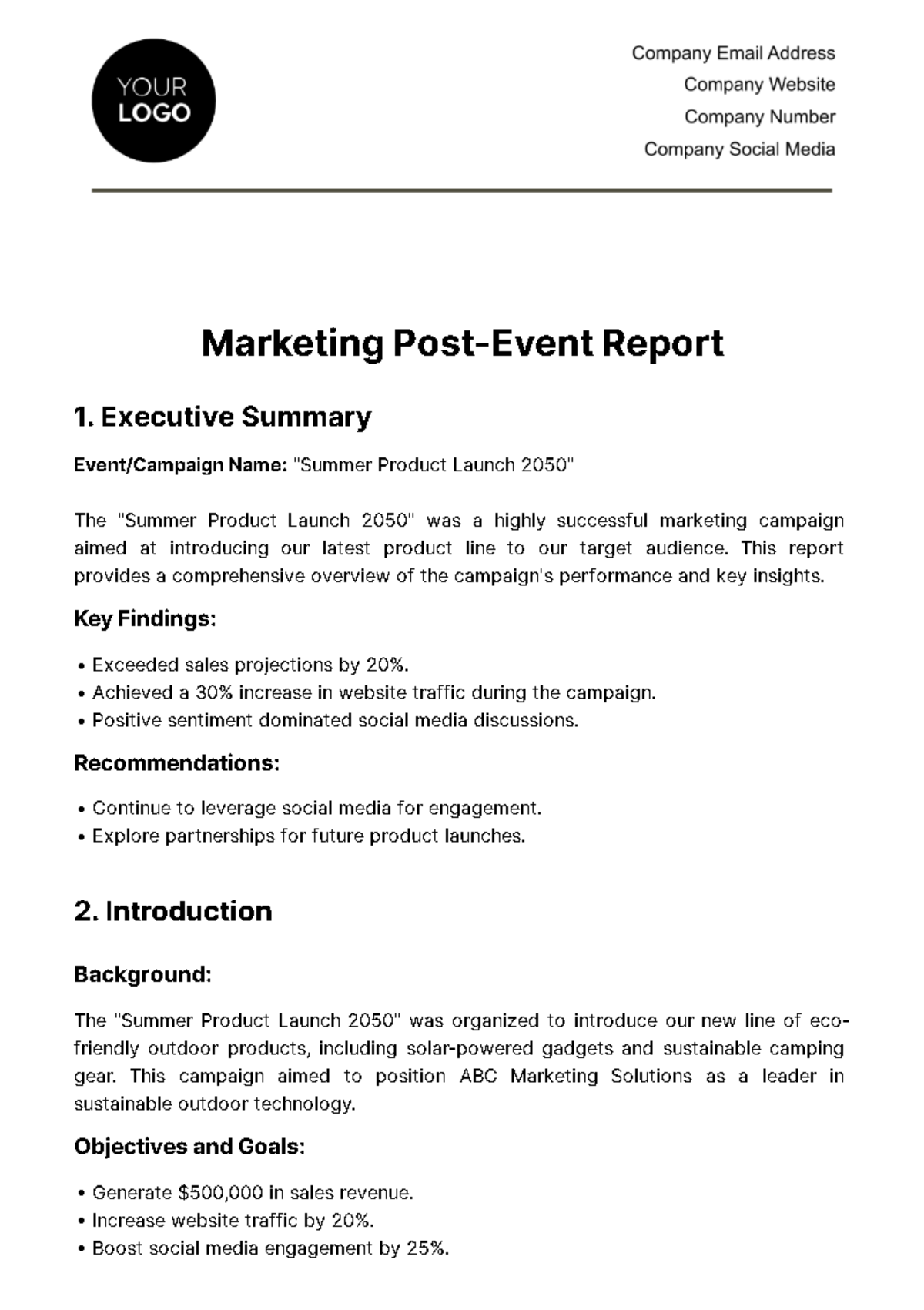Annual Event Summary Report
I. Overview of the Event
A. Introduction
The annual event was held to encompass the major achievements and highlights of the year. Throughout the year, we have seen exponential growth in various departments, significant improvements in workflows, and noteworthy advancements in technology.
B. Objectives
The objectives of the annual event were to:
Celebrate the year's achievements.
Recognize outstanding contributions by employees.
Lay out strategic plans for the upcoming year.
II. Event Summary
A. Attendance and Participation
Participation was at an all-time high, with representatives from all departments attending the event. The detailed statistics are presented below:
Department | Number of Attendees |
|---|---|
Sales | 50 |
Human Resources | 30 |
Research and Development | 40 |
Marketing | 35 |
Customer Support | 25 |
B. Keynote Addresses
The event featured keynote addresses from several prominent figures within the organization. Key topics addressed include:
Future Trends in the Industry
Innovations and Technological Advancements
Strategies for Improved Customer Engagement
III. Achievements of the Year
A. Milestones Reached
Throughout the year, we have reached numerous milestones. Some of the major ones include:
Launch of new product lines.
Expansion into new markets.
Establishment of new partnerships.
B. Employee Recognition
An essential part of the annual event was employee recognition. Several employees were acknowledged for their exceptional contributions in various categories:
Category | Employee |
|---|---|
Employee of the Year | John Doe |
Innovator of the Year | Jane Smith |
Team Player Award | Michael Brown |
IV. Strategic Plans for Next Year
A. Goals and Objectives
The strategic goals for the upcoming year are aimed at fostering growth and innovation. They include:
Enhancing product quality and customer satisfaction.
Expanding the market share through strategic initiatives.
Investing in employee training and development.
Each goal is accompanied by specific, measurable objectives to ensure progress is tracked and achieved.
B. Implementation Strategies
The implementation strategies revolve around leveraging current strengths and addressing areas for improvement. They are broken down into the following steps:
Performing a comprehensive market analysis to identify new opportunities.
Allocating resources effectively to high-impact projects.
Utilizing technology to streamline operations and enhance productivity.
The success of these strategies will be closely monitored through quarterly reviews and adjustments will be made as necessary to ensure alignment with the overall goals.







































